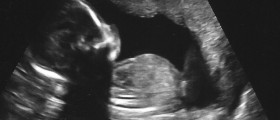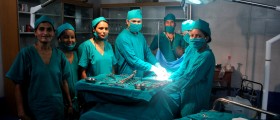
Ultrasound waves produce, heat, sound, and vibrations. Some studies suggest that fetuses commonly react to ultrasound waves by changing position, away from the ultrasound transducer, and even cover their eyes with their hands. The World Health Organization, definitely a great authority when it comes to medicine, looked into the safety of ultrasounds in pregnancy in 1982 and found several areas of concern. The Yale School of Medicine published a study on this issue in 2006, suggesting a link between excessive ultrasound exposure and mental health problems, as well as birth defects.
Some studies claim there are links between ultrasounds and miscarriage and preterm labor, while others even mention connections between ultrasounds and leukemia. That is a lot to think about! Had I had all this information during my pregnancies, I might have been more cautious about accepting ultrasound technology! Many doctors would argue that the benefits of ultrasounds by far outweigh their risks, and that may be true in some cases. But ultrasounds are also known for the fact that they can be extremely inaccurate in determining a baby's size, and even birth defects. Diagnoses of fetal macrosomia (a big baby), placenta previa (where the placenta covers the cervix), or a low level or amniotic fluid often lead to a c-section. All too often, the diagnosis turns out to be totally inaccurate after the birth. Healthcare during pregnancy is a complex matter, and with all the contradictory information out there, ultimately one that every woman has to decide about for herself. Personally, if I ever get pregnant again, I think opting to have only one ultrasound carried out by a skilled medical professional (rather than one of those "for fun" 4D places!) is a good compromise.
















Your thoughts on this
Loading...